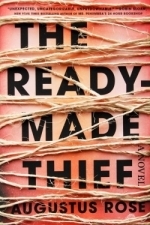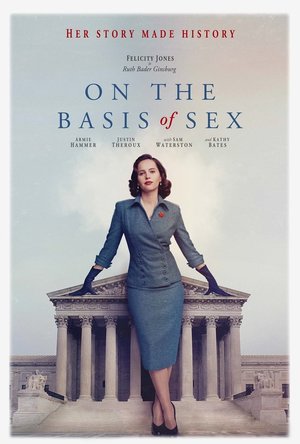Search
Search results
Mark @ Carstairs Considers (2492 KP) rated “P” is for Peril in Books
Jan 18, 2020
Missing Doctor Leads Kinsey to Peril
Nine weeks ago, Dr. Dowan Purcell vanished without a trace. Now, his ex-wife, Fiona, has hired PI Kinsey Millhone to figure out what happened to him. Kinsey isn’t sure she can cover any ground that the police haven’t already covered because they have been as thorough as they can be, but she gamely agrees anyway. Soon, she is caught in a web of speculation. It seems everyone has a theory, from Fiona to Dr. Purcell’s current wife, Crystal, to family and friends. But can Kinsey find any clue to figure out what actually happened to him?
The mystery starts well as always, and I was soon caught up in the case. There is a very strong sub-plot that helped draw me further into the story. I love Kinsey and the other regulars, so it is always fun to spend time with them, and the new characters are just as strong. Even the weather, a cold November rain, helped add the right atmosphere to the book. Then I got to the ending. The book just stops. It’s very abrupt. While I have a theory on what happened and why, it would have been nice to have it confirmed, especially since I can come up with another equally as compelling theory on what happened and why. These kinds of endings work for literary novels, but are frustrating for mystery readers. Fans of the series will still be glad they read this entry, but new readers definitely shouldn’t jump in here since there are stronger books in the series.
The mystery starts well as always, and I was soon caught up in the case. There is a very strong sub-plot that helped draw me further into the story. I love Kinsey and the other regulars, so it is always fun to spend time with them, and the new characters are just as strong. Even the weather, a cold November rain, helped add the right atmosphere to the book. Then I got to the ending. The book just stops. It’s very abrupt. While I have a theory on what happened and why, it would have been nice to have it confirmed, especially since I can come up with another equally as compelling theory on what happened and why. These kinds of endings work for literary novels, but are frustrating for mystery readers. Fans of the series will still be glad they read this entry, but new readers definitely shouldn’t jump in here since there are stronger books in the series.
Jamie (131 KP) rated The Ready-Made Thief in Books
Aug 15, 2017
Narrative flow (2 more)
Wonderful ode to Duchamp
Intense story premise makes it hard to put down
Plot felt a little weak with many aspects that are just plain illogical (1 more)
Science conspiracy was quite frankly boring
A love letter to Marcel Duchamp
Well this book is certainly interesting, so much so that I still don’t fully know what to make of it. The Readymade Thief is a love letter to Marcel Duchamp, a French-American artist that became famous in the early twentieth century for his influence on conceptual art. He is most famous for his readymades, manufactured pieces that he turned into art. His stance on what constituted art is an idea that could be applied to the novel.
“An ordinary object elevated to the dignity of a work of art by the mere choice of an artist.”
It’s art if the artist says that it is art. There are connections if that’s what you want to see. Duchamp’s life and work are threaded throughout the story, even some very small references that are easy to miss, and this was actually pretty awesome. The study of Duchamp’s work I think made for an interesting aspect of the story, and I liked the ideas about the fanatical secret society and the dark sort of humor to the plot.
I have to commend Augustus Rose for his skill in creating a narrative flow that was so easy to take in. For the first half of the book Lee appears lost, like she’s treading water. It had a dream-like feel to it as Lee drifts in and out of different events. As the story goes on and the mystery starts to unravel Lee finds herself completely immersed. This steady shift in tone is reflected beautifully in both the pacing and the prose, from a drug-fueled haze to cold sobriety.
So why do I feel so undecided about this book? The devil is in the plot itself, which to me felt like it had too many holes and not well developed enough at points. Most of the Crystal Castle plot feels like it was thrown out of the window and I found it underwhelming. Then there was Tomi, the hacker. If there is one thing that is difficult to write about hackers and the deep web. I won’t go into many details about it due to spoilers, but there were a lot of pieces of this portion of the plot that was just plain illogical and almost pointless. I even checked with a friend of mine that is a student in cyber security to be sure. Frankly the deep web is almost romanticized in the book when it really shouldn’t be.
Also while I know that convenience was important for creating the dreamy flow that I mentioned earlier, a lot of things seemed a little bit too convenient to be believable a lot of the time. A good portion of the plot was easy to predict, but I was still compelled to read because I wanted to know more of the why than the what.
This book was a pretty cool read overall if you can get over the hangups that I had. It is the type of book that will leave you feeling confused right along with the main character throughout the entire book. All in all it was a mixed bag of mostly good things. It’s definitely an experience and worth the read in the very least to appreciate the tone and the feel of the writing which was really great. It’s the type of story I could easily see adapted to a television drama that I would watch in a heartbeat.
“An ordinary object elevated to the dignity of a work of art by the mere choice of an artist.”
It’s art if the artist says that it is art. There are connections if that’s what you want to see. Duchamp’s life and work are threaded throughout the story, even some very small references that are easy to miss, and this was actually pretty awesome. The study of Duchamp’s work I think made for an interesting aspect of the story, and I liked the ideas about the fanatical secret society and the dark sort of humor to the plot.
I have to commend Augustus Rose for his skill in creating a narrative flow that was so easy to take in. For the first half of the book Lee appears lost, like she’s treading water. It had a dream-like feel to it as Lee drifts in and out of different events. As the story goes on and the mystery starts to unravel Lee finds herself completely immersed. This steady shift in tone is reflected beautifully in both the pacing and the prose, from a drug-fueled haze to cold sobriety.
So why do I feel so undecided about this book? The devil is in the plot itself, which to me felt like it had too many holes and not well developed enough at points. Most of the Crystal Castle plot feels like it was thrown out of the window and I found it underwhelming. Then there was Tomi, the hacker. If there is one thing that is difficult to write about hackers and the deep web. I won’t go into many details about it due to spoilers, but there were a lot of pieces of this portion of the plot that was just plain illogical and almost pointless. I even checked with a friend of mine that is a student in cyber security to be sure. Frankly the deep web is almost romanticized in the book when it really shouldn’t be.
Also while I know that convenience was important for creating the dreamy flow that I mentioned earlier, a lot of things seemed a little bit too convenient to be believable a lot of the time. A good portion of the plot was easy to predict, but I was still compelled to read because I wanted to know more of the why than the what.
This book was a pretty cool read overall if you can get over the hangups that I had. It is the type of book that will leave you feeling confused right along with the main character throughout the entire book. All in all it was a mixed bag of mostly good things. It’s definitely an experience and worth the read in the very least to appreciate the tone and the feel of the writing which was really great. It’s the type of story I could easily see adapted to a television drama that I would watch in a heartbeat.
Gareth von Kallenbach (980 KP) rated On the Basis of Sex (2018) in Movies
Jul 2, 2019
In the year 2018, it’s easy to forget how much the times have changed over the last century. We now carry computers around in our pockets, have the internet to conduct worldwide business in a matter of seconds and cars that run on electricity. Considering all of these amazing technological advancements you would think something as simple and no-brainer as equal rights must have been around for hundreds and hundreds of years, right? Well, the new movie On the Basis of Sex humbly reminded me that the equal rights movement was not too much longer ago than the invention of the internet and it was just the type of reminder I needed to once again appreciate just how far we have come.
On the Basis of Sex is a biopic detailing Ruth Bader Ginsburg’s (Felicity Jones) rise from one of the first women “invited” to attend Harvard Law School to becoming the 2nd woman nominated to the U.S. Supreme Court. The first part of the movie aptly chronicles Mrs. Ginsburg’s experience as a woman at Harvard Law School and then getting her first job as a professor at Rutgers Law School in 1963. Considering she graduated at the top of her class being a professor was not her dream job, but law firms were not looking to hire female lawyers, so she made the best of it. This all leads up to the main focus of the film which is Mrs. Ginsburg representing a Colorado man who has been denied caretaker tax benefits because the tax code specifically applied to women. The movie shows both her struggles and triumphs with the case and why equal rights were so important to her. Although the movie focused on this one case, it was crystal clear that Ruth Bader Ginsburg was a force to be reckoned with and this was just one of many cases she would take on to ensure greater equality for woman.
Felicity Jones does an incredible job portraying Mrs. Ginsburg. She brings a swagger to the character and used an authentic sounding Brooklyn accent to boot. Armie Hammer also does a great job playing the ever supportive and unshakable husband Marty Ginsburg. They had great chemistry on screen and did an excellent job showing just how supportive they were to one another. Even though their relationship was not the focus of the film, it was very touching and added a little extra heart to the story. Speaking of the story, it was both engaging and thought provoking, so much so that its effects are still there even after leaving the theater. I enjoyed how the story unfolded and the fact that it never got to preachy or political. As biopics go, there were a few spots that seemed to drag on a bit, but generally the pace never lingered in one spot for too long and it kept my interest the whole time.
On the Basis of Sex was a very good movie and a welcome addition to this year’s holiday movie offerings. If you are looking for something different after a couple of hours with web slinging spider-folk and yellow cars that turn into giant robots then this would be a great movie to check out. With excellent acting, a great inspirational story and even a little bit of heart, I really couldn’t ask for anything more.
On the Basis of Sex is a biopic detailing Ruth Bader Ginsburg’s (Felicity Jones) rise from one of the first women “invited” to attend Harvard Law School to becoming the 2nd woman nominated to the U.S. Supreme Court. The first part of the movie aptly chronicles Mrs. Ginsburg’s experience as a woman at Harvard Law School and then getting her first job as a professor at Rutgers Law School in 1963. Considering she graduated at the top of her class being a professor was not her dream job, but law firms were not looking to hire female lawyers, so she made the best of it. This all leads up to the main focus of the film which is Mrs. Ginsburg representing a Colorado man who has been denied caretaker tax benefits because the tax code specifically applied to women. The movie shows both her struggles and triumphs with the case and why equal rights were so important to her. Although the movie focused on this one case, it was crystal clear that Ruth Bader Ginsburg was a force to be reckoned with and this was just one of many cases she would take on to ensure greater equality for woman.
Felicity Jones does an incredible job portraying Mrs. Ginsburg. She brings a swagger to the character and used an authentic sounding Brooklyn accent to boot. Armie Hammer also does a great job playing the ever supportive and unshakable husband Marty Ginsburg. They had great chemistry on screen and did an excellent job showing just how supportive they were to one another. Even though their relationship was not the focus of the film, it was very touching and added a little extra heart to the story. Speaking of the story, it was both engaging and thought provoking, so much so that its effects are still there even after leaving the theater. I enjoyed how the story unfolded and the fact that it never got to preachy or political. As biopics go, there were a few spots that seemed to drag on a bit, but generally the pace never lingered in one spot for too long and it kept my interest the whole time.
On the Basis of Sex was a very good movie and a welcome addition to this year’s holiday movie offerings. If you are looking for something different after a couple of hours with web slinging spider-folk and yellow cars that turn into giant robots then this would be a great movie to check out. With excellent acting, a great inspirational story and even a little bit of heart, I really couldn’t ask for anything more.


